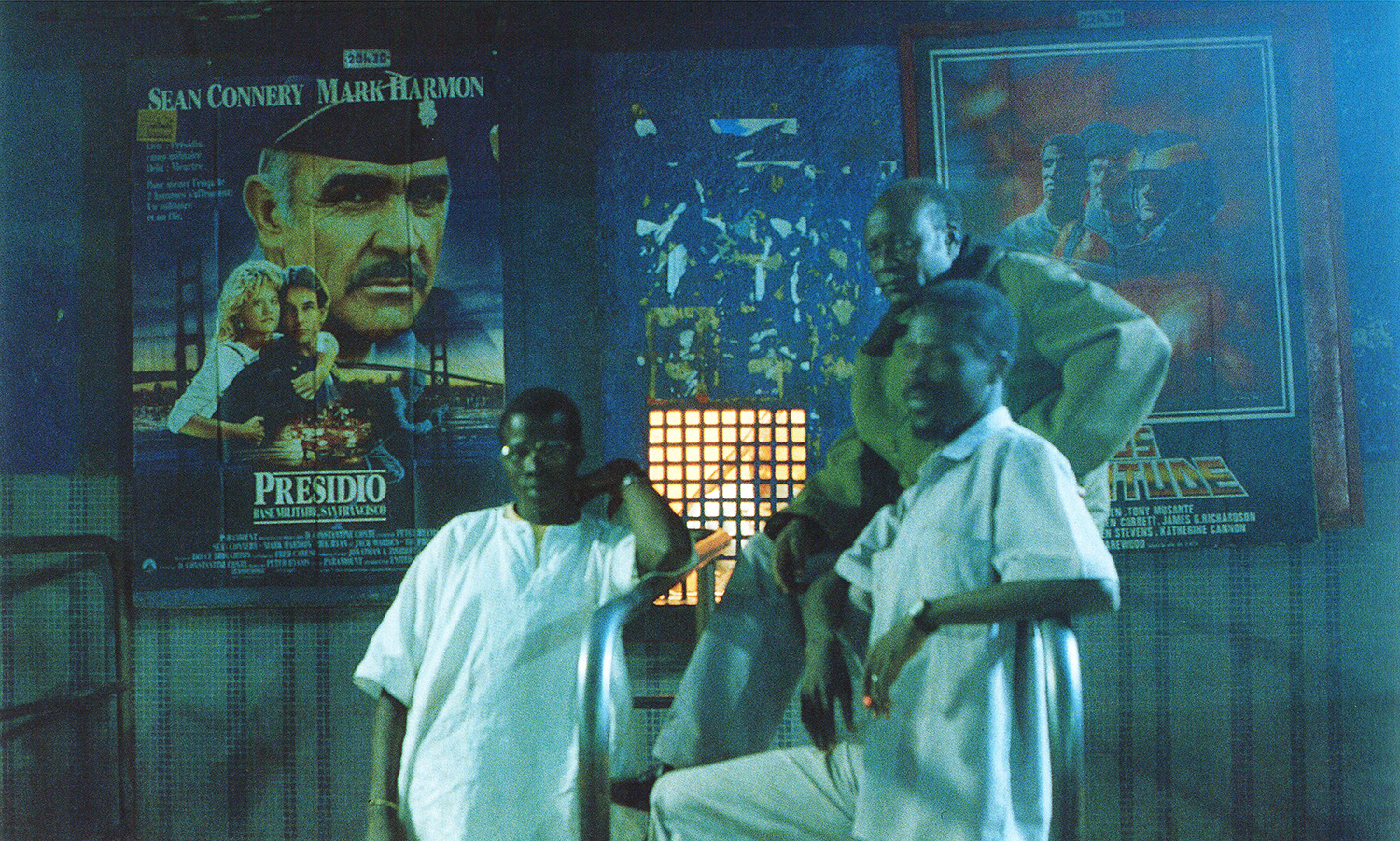and the russian novelist
by Simon Njami
The lights slowly go out. The screen lights up. Some throats are cleared, some seats creak and the show begins. Panorama : a landscape in the distance. A desert. The blurred silhouette of a rider moves forward. Sequence shot : the rider moves towards us until we can distinguish his features, then he stops. He takes off his hat and wipes his face with a dirty handkerchief. He puts his hat back on and continues to come forward towards us, staring at a spot we cannot see. Reverse shot : a small village with its church steeple...
For a time that would be impossible to calculate, to quantify, there we are propulsed into another universe. A universe to which neither painting, nor photography, nor literature, nor any other art form gives such immediate access as those moving images which reproduce so well the illusion of a real, autonomous life. The common element, perhaps the only one that cinema has with the other art forms, is the notion of language. Here in the darkened auditorium there are keys, codes, sounds that the images' apparent reality renders accessible to everyone.
As a child, when my parents took me to the cinema in Douala, I was fascinated, not so much by the images moving about over there in front of me that made me think that something magical was hiding behind the reflecting screen, as by the show that was going on in the cinema itself. The shouts, the yells each person vehemently taking sides for or against one or other of the characters. Today, even if the unformulated hope of seeing the actors come to say good-bye at the end of the film is over, I still have the indelible emotion of this necessary communion, the strange immodesty which, for the space of a film allowed each person to come out of himself notwithstanding countries or customs that are shown on the screen. That alchemy that allowed us to become Gary Cooper and Charlie Chaplin and - later - Sydney Poitier...
Colour didn't exist, no longer existed. We became the man the gang of bandits had decided to have a showdown with in Death Canyon. Our life depended on our ability to shoot faster than the other man. To run faster. And in these really conventional tragedies, I was always surprised to find I took the side of the bad guy. Many African directors have told me that they have been influenced by the same characters that I was brought up with.
In the West, cinemas are like theatres : temples where you are forbidden to cry or laugh too loudly, to squeeze convulsively the arm of your unknown neighbour, whose face you would not recognise as soon as you got out of the cinema. I miss that momentary brotherhood. I, too, have learnt not to laugh, not to cry loudly. I have learnt to leave the cinema with the sad face of one who has just attended a particularly boring conference. And I am waiting patiently for other stories to take me away from this slow death.
From the intellectualism that kills all emotion and which, instead, condemns us to be the analysts of other people's madness. I had hoped that African films would take me back to my childhood and that special joy of those moments of recreation. Apart from a few good attempts, nothing has come along. I don't understand. I have even almost given up waiting. If, as I said, cinema is language, then African cinema has not yet found its language. And while I believed I could still bathe in a heat whose heart would warm me, a vision of the world that might have reconciled me with my own complicated personal story, I discovered to my astonishment that Gary Cooper's shadow still hung over me, engraved on the tissues of my memory. And yet I am not Gary Cooper. I am nothing like him. In any case, no more than like such and such a character in an African film. And so, why ? Perhaps because Gary spoke to me personally while the others didn't care whether or not I existed somewhere.
Perhaps the secret of the magic is in the extreme simplicity of the films he acted in. The directors who directed him, the script writers who wrote for him, didn't write as much for him as for me. I like films that give me the feeling they were written for me. Beyond years and miles. And African film-makers have been too egocentric to listen to me. And yet I'm not asking for much. Hardly even a story. Characters ? Yes. Certainly. Characters whose skin I can get under, as in a 19th century Russian novel. The 19th century Russian novelist didn't know me. And yet he, too, wrote for me, searching deep down inside to find what he could communicate to me and what I could understand, admit. Understanding is not everything, of course. But feeling that one can understand is essential. That one is not completely excluded. Feeling excluded by African film-makers, I have drifted slowly away from them, as one drifts away from a love affair where nothing more can be expected. Expectantly...
Today, I realise that I have probably been too unfair. That I have behaved like a possessive younger brother who expects too much, too fast from his older brother who has to be of course, brilliant.
***
by Simon Njami
(published in the magazine Revue Noire RN08, African Cinema, March 1993)
.

